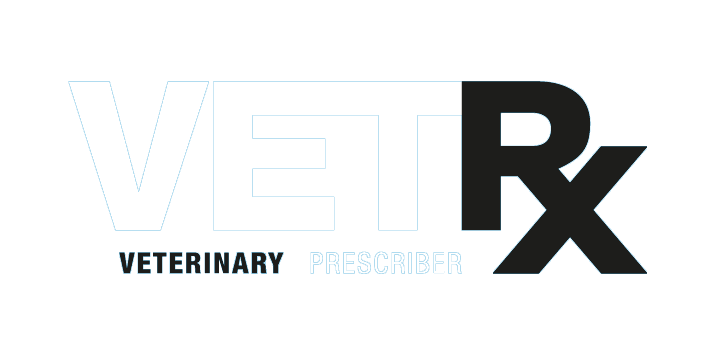Telemedicine - opportunities and opportunists
Telemedicine - opportunities and opportunists
Telemedicine – opportunities and opportunists
Restrictions on social interaction as a result of COVID-19 have led to several companies launching telemedicine (teleconsultation) services to enable remote interaction between vets and clients. As well as protecting people from the virus, there are other potential benefits that teleconsultation could bring. Some that were identified in the RCVS survey on telemedicine are: less stress for animals; advantages of seeing animals in the home environment; useful for triage and providing general advice such as in relation to minor conditions and preventative medicine; and more efficiency and convenience (for the vet and/or client). The most controversial aspect has been the possibility that it will lead to inappropriate prescribing driven by financial considerations.
Under UK law (the Veterinary Medicines Regulations), when prescribing a prescription-only medicine, a vet must carry out a clinical assessment of the animal, and the animal must be under the vet’s care. ‘Under care’, is interpreted in the RCVS Code of Professional Conduct (not defined in the Regulations) as usually including a physical examination of the animal and so a vet should not treat an animal or prescribe POM-V medicines via the Internet alone. Most respondents to the RCVS survey did not consider that the definition of ‘under care’ should be extended to allow vets to prescribe veterinary medicines where there has been no physical examination of the animal, although many considered that it would be acceptable for low-risk medicines or conditions (e.g. parasite control), and where the vet is familiar with the animal/condition or for providing repeat prescriptions.
The COVID-19 pandemic has provided a taste of what could evolve since the RCVS brought in a temporary relaxation of the guideline around prescribing POMs, so that for the time being prescribing without a physical examination is permitted in exceptional circumstances and when appropriate.
A recent podcast discussion describes how teleconsultation could be used for potentially beneficial reasons but also how it might be used as part of a business module that, I believe, could undermine the hard-won trust of the public in the veterinary profession. The discussion takes place between the CEO of a telemedicine company and the Founding Partner of VetzPetz, a veterinary supplements company and describes the business model behind the introduction of a joint supplement (Antinol) in the UK. This is how it works: VetzPetz’s stated aim is to fix the problem of vets recommending products but then losing income through pet owners going away and buying them more cheaply online. The idea is that the vet recommends Antinol to the client in the clinic and then, whether the pet owner continues to buy the product through the clinic or online, the vet (through an identifying code) continues to get a cut of the sales for as long as the product is being bought. There is also scope for growth of this passive income by mining practices’ client databases to identify candidate patients with mobility problems to whose owners the product can be recommended.
Where teleconsultation during COVID-19 comes in is that you might have seen an advert for Antinol in a recent issue of the Vet Times promoting the supplement as a “long term treatment option that you can safely recommend, remotely to your clients” who are “at home and spotting the subtle signs of osteoarthritis”. The advert goes on to say that vets receive a recommendation fee (doubled while clinics are unable to see non-urgent cases). Incidentally, it seems to me that if a supplement is being used as a treatment this is technically prescribing and as an unauthorised product, it comes in at the last step of the Prescribing Cascade.
VetzPetz has an assessment tool for use by the clients using Antinol to monitor its effects. This is an example of an innovation enabled through teleconsultation that, if used more generally, could actually bring benefits to animals, clients and practices. Using video consultation and assessment tools could help identify joint disease at an earlier stage and help evaluate treatments. However, in this particular scenario it is unlikely to do any more than show a caregiver placebo effect that will reinforce belief in the efficacy of a supplement.
Apparently selling the supplement through vets in Japan has been very successful. But I believe the company has misjudged UK vets. Although the business module might seem to have vets’ best interests in mind, how will it affect clients’ trust in vets after a declaration (as required in the RCVS Code of Professional Conduct) of a conflict of interest because the vet or practice will receive a payment for recommending the product? Will vets feel comfortable in the role of sales agent for a supplements company? Many pet owners set great store by supplements, which often goes hand in hand with a mistrust of medicines, so vets already have a hard job educating clients about effective treatments, such as NSAIDs. This won’t help. The party with most to gain from such an arrangement is VetzPetz.
Andrea Tarr, Founder and Director of Veterinary Prescriber
Our purpose...
......is to provide busy veterinary professionals with impartial information on veterinary medicines with which to make treatment decisions in the best interests of animals, their owners and the environment. We mainly do this through the Virtual Veterinary Medicines Academy where our evidence-based peer-reviewed appraisals are the result of a rigorous research and editorial process and are presented succinctly in our multi-media CPD modules. We’re independent: we don’t sell ads, or receive commercial support. We’re funded by subscribers so you can be sure the information we provide is completely objective. Subscribers get unlimited access to the Virtual Veterinary Medicines Academy.
